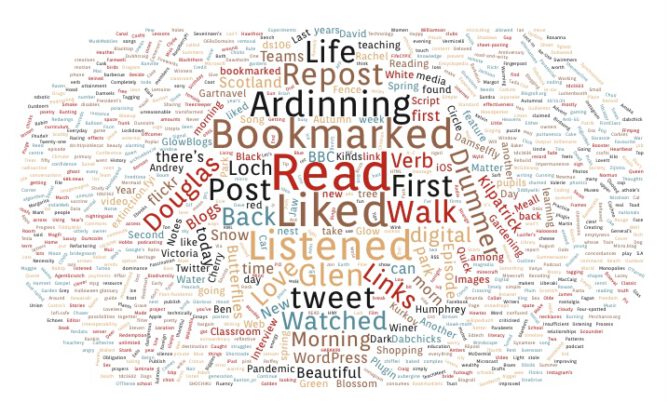Read this thread by @BootstrapCook. Brilliant work on how unfair inflation currently is.
Many thanks to Robert Macmillan for re tweeting.

Woke up this morning to the radio talking about the cost of living rising a further 5%. It infuriates me the index that they use for this calculation, which grossly underestimates the real cost of inflation as it happens to people with the least. Allow me to briefly explain.
Read this thread by @BootstrapCook. Brilliant work on how unfair inflation currently is.
Many thanks to Robert Macmillan for re tweeting.
An xTalk syntax, inspired by HyperTalk
Full uncut interview with land campaigner Andy Wightman discussing rewilding, land reform, trees and why the Scottish mountains look the way they do.
Great listen (huffeduffed the youtube) nuanced discussion.
Fusilli with tinned sardines, fennel, lemon and anchovy crumbs.
I think I had the correct ingredients! We are split over the crumbs. D prefers our usual plain in butter. I am with the anchovies.
From Rachel Roddy’s An A-Z of Pasta. Planning to get through all the ones without meat.
https://snarfed.org/10th_birthday_cake.jpg Today marks 10 years to the day since I first launched Bridgy, my little IndieWeb side project to connect social networks and personal websites. Happy Birthday, Bridgy! I’ve always loved the internet, but I’m n...
Bridgy is part of the IndieWeb suite of tool I’ve been using it since 2015 without full understanding but with full appreciation. Along with the Post Kinds Plugin and the Syndicated links one has very much changed my blog.
Read: O Caledonia by Elspeth Barker ★★★★★📚
2022 off to a good start. Brilliant fun. Short strange life of Scot’s girl. Gothic home, weird family, horrible school. Laugh out loud & touching.

Five years ago I reviewed the previous years blogging by making a word cloud from the posts titles 2015 in Titles.
I though I’d have another go. The result is quite different.
Bigoli in Salsa
Bigoli with onions and anchovy
No bigoli so used bucatini
Simple and tasty.
the mush is now grey-brown
is not inspiring, but accurate.
From Rachel Roddy’s An A-Z of Pasta. Planning to get through all the ones without meat perhaps in 2022.
The most I’ve read since starting to make notes on my reading in 2018. Covid had something to do with that.
I probably need to split up the page soon. It uses the display posts plugin to pull out the content of the posts. I stopped using the Read Post Kinds and switched to Notes to avoid the link and quote provided by the post kinds plugin.
I make pretty short notes and include the 📚 emoji to share to the micro.blog book discovery page. I am not sure about the stars, more a bit of fun than anything serious.
I’ve seen a few mentions of book recording systems recently, micro.blog is developing bookshelves(with cover art). I sometime use GoodReads, but am more interested in DIY. I got a mention from Ton, which lead to more ideas about sharing. OPML seems to be one way. I am wondering (above my pay grade) about JsonFeed and the WordPress Rest API json and if they might be useful. JsonFeed seems to be limited to the count in your RSS feed (for WordPress).